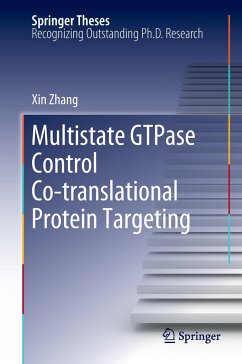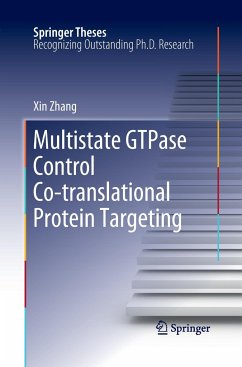Proteins act as macromolecular machinery that mediate many diverse biological processes - the molecular mechanisms of this machinery has fascinated biologists for decades. Analysis of the kinetic and thermodynamic features of these mechanisms could reveal unprecedented aspects of how the machinery function and will eventually lead to a novel understanding of various biological processes. This dissertation comprehensively demonstrates how two universally conserved guanosine triphosphatases in the signal recognition particle and its membrane receptor maintain the efficiency and fidelity of the co-translational protein targeting process essential to all cells. A series of quantitative experiments reveal that the highly ordered and coordinated conformational states of the machinery are the key to their regulatory function. This dissertation also offers a mechanistic view of another fascinating system in which multistate protein machinery closely control critical biological processes.
Written while completing graduate work at California Institute of Technology.
Written while completing graduate work at California Institute of Technology.








